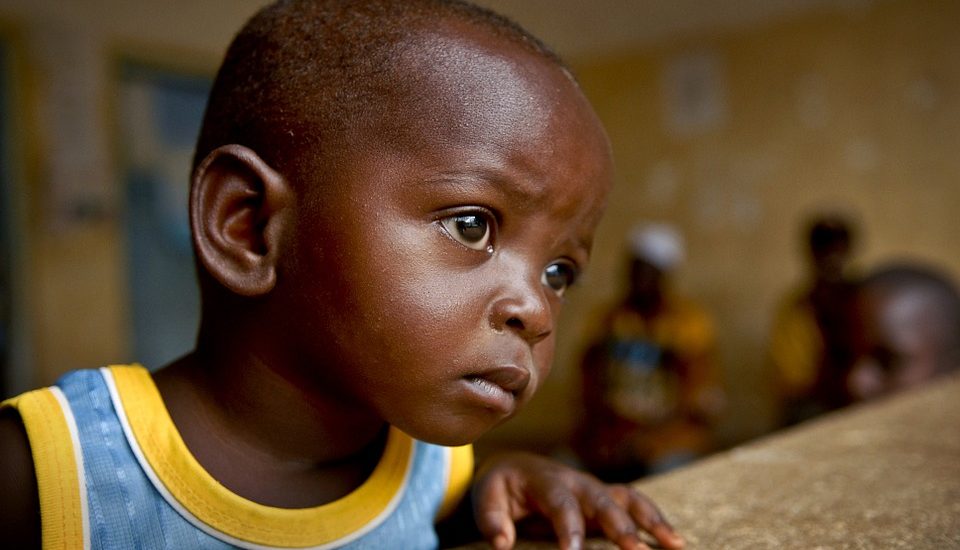- September 5, 2017
- Posted by: acjered
- Category: Uncategorized

Nigeria is richly endowed with abundant natural and human resources. Nigerians are smart people and could be found in almost every critical economic endeavor around the world, especially in the developed countries. Nigeria before independence played dominant role in the economic worlds of cocoa, groundnut, rubber, cotton, palm oil etc. We had the first television station in tropical Africa and an educational system that attracted foreign students from the advanced nations. This was so until the military took over the reins of government in 1966.
The military junta in its wisdom started a gradual shift from regionalism to the present states’ structure that was premised on unitary approach but labeled it a federation. The federal government aggrandized all the powers to the center and doles out monthly allocations to the governors. That began the era of the movement from an agrarian economy to the petro-dollar rent economy.
Just with all other oil cursed countries, Nigeria in the wake of jumbo oil earnings embarked on white elephant projects, did not cultivate the habit of savings and corruption soared. Nigeria was so rich to the extent that she fought the Nigerian Civil war without borrowing. No wonder, General Yakubu Gowon who successfully prosecuted the war has been quoted severally as saying that “money was not Nigeria’s problem, but how to spend it”. Nigeria became the toast of the world and oil and gas investment destination and had a meteoric rise economically. Forty-six years down the lane, another Nigeria’s leader, President Muhammadu Buhari GCFR; who was once a military ruler and former Minister of Petroleum resources told the world that Nigeria is broke.
Nigeria that was at a point the largest economy in Africa has now been beaten to the second position. Our maternal mortality rate in the world is abysmal, our oil and gas sector has been fatally abused and gasping for breath, many of the Multinationals have or are at the verge of divesting from the country. Inflation reached an all time high of 15.6 per cent in the month of May 2016. World indicators for the measurement of Nigeria’s educational, health and social development do not reflect a nation that once had an oil boom. For instance, out of 980 ranked universities in the world in the 2016/2017 cycle, only one Nigeria’s university made the list and in distant position of 6011. Whereas South Africa has eight of her universities listed with the University of Cape Town ranking number 1482. In the area of health, Muanya C: 20173 stated that out of 195 nations and countries tracked for progress made in health care quality and access, using The Healthcare Access and Quality Index; Nigeria was ranked 140 with 51 out of 100 points. The index used 1990 benchmark against the progress made so far in tracking 32 diseases including tuberculosis, preventable diseases of which vaccines are available like diphtheria, whooping cough, tetanus and measles, maternal or neonatal diseases etc.
What a paradox! What is wrong with Nigeria that we have become broke and struggling to pay the salaries of our working class? The present administration and many other experts have fingered corruption as the major trigger factor responsible for our failings. Apart from corruption, lack of accountability and leadership crisis, lack of internal democracy within our democratic structures has also been identified as our flaws that must be urgently tackled. Therefore, the need for all hands to be on deck in supporting the current war on corruption cannot be over emphasized.
Looking at the above, AfriTAL feels a sense of loss and pain because the pages of newspapers on daily basis reel out huge sums looted from the government treasury, which would have been enough to put Nigeria on high pedestal of socio-economic development. The albatross of our past was eating all we earn without savings, corruption, selfish leaders, wallowed in import dependence to the extent that we imported tooth picks and rice to the detriment of internal production, we exported all our raw materials in the agricultural and oil sectors and exchanged them for imported finish products thereby developing other economies etc. The outcome was the total collapse of our manufacturing, health and educational sectors
Though the Buhari administration has however, commenced righting some of these negative attitudes. Nigeria needs people and organizations to speak out against anything that negate the best practices in governance. We must collectively speak out against oppression, inequalities and injustices if our children must have a country that would truly guarantee them, food, shelter, education, good health and security. We must do everything possible to build on the gains being made now. For instance, Nigeria’s foreign reserves despite crashing oil prices and low crude production as at June 2017 stood at over $31 billion, US$500m added to Nigeria’s Sovereign Wealth Fund and US$87m to the Excess Crude Account4. It behooves on every responsible, selfless and future looking Nigerians to partner with us in reaching out to “catch them young” thereby shifting the paradigms of our youths from what they are today to an accountable, transparent and responsible future leaders.
It is in response to the above, that we have emplaced Afrital to be one of the voices of the voiceless and a platform for the advocacy for accountable, transparent, responsible leadership and good governance.
To achieve our goals, AfriTAL will engage and partner with stakeholders to advocate and engender participatory, robust, open and accountable processes in the building of a critical mass from among our diverse youth groups; and nurture them for future responsible governance.
